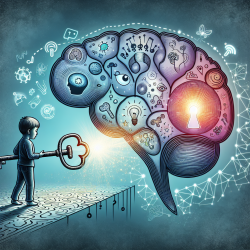Introduction
In rural areas, particularly within farming communities, accessing mental healthcare services presents unique challenges. The study titled An Evidence-Based Guide for Delivering Mental Healthcare Services in Farming Communities: A Qualitative Study of Providers’ Perspectives offers valuable insights into these challenges and proposes strategies to improve service delivery. This blog aims to highlight key findings from the study and encourage practitioners to implement these strategies or engage in further research.
Key Findings and Recommendations
1. Ensuring Accessibility
Accessibility remains a significant barrier for farmers seeking mental health support. The study highlights the importance of addressing geographical, technological, and financial barriers. Practitioners are encouraged to offer flexible service options, including virtual sessions, and to advocate for increased funding and insurance coverage to make services more affordable.
2. Establishing Relatability
Building trust with farmer clients is crucial. Healthcare providers should demonstrate an understanding of the agricultural lifestyle and its unique challenges. This can be achieved by employing staff with agricultural backgrounds and tailoring services to resonate with the farming community.
3. Addressing Stoicism and Stigma
Farmers often exhibit stoicism and face stigma when seeking mental health support. Practitioners should work to normalize mental health discussions within the community and offer discreet services to reduce fears of judgment and gossip.
4. Navigating Dual Roles
In rural areas, dual relationships are common, and practitioners must navigate these carefully. Establishing clear boundaries while actively participating in community events can help maintain professionalism and build trust.
5. Understanding Community Trauma
Community trauma, such as collective grief from significant losses, affects the entire community. Practitioners should be prepared to address these events and provide ongoing support to help communities heal.
Implementing the 3-ACORNS Framework
The study introduces the 3-ACORNS framework, which guides healthcare providers in assessing and improving their services to be more agriculturally informed. By focusing on accessibility, relatability, and addressing community-specific challenges, practitioners can enhance their engagement with farming populations.
Conclusion
Improving mental healthcare delivery in rural farming communities requires a multifaceted approach. By implementing the evidence-based strategies outlined in the study, practitioners can better meet the needs of this vulnerable population and contribute to reducing poor mental health outcomes and suicide rates among farmers.
To read the original research paper, please follow this link: An Evidence-Based Guide for Delivering Mental Healthcare Services in Farming Communities: A Qualitative Study of Providers’ Perspectives.










